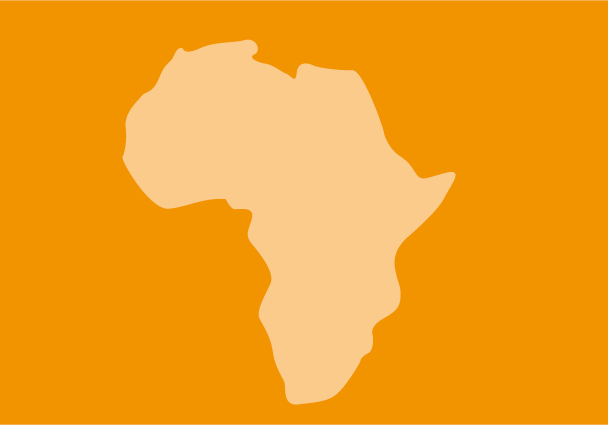
Feb 23, 2017 | Advocacy, Open letters
The ICJ joins South Sudanese, regional and other international non-governmental organizations in a joint letter urging the Human Rights Council to renew and strengthen the mandate and capacity of the UN Commission on Human Rights in South Sudan.
Action is needed to address the continued lack of accountability for severe, widespread and on-going crimes under international law and human rights violations and abuses, many of which amount to war crimes and crimes against humanity, during the upcoming 34th session of the UN Human Rights Council (UN HRC).
South Sudan-letter HRC34-Advocacy-Open letters-2017-ENG (full text in PDF)
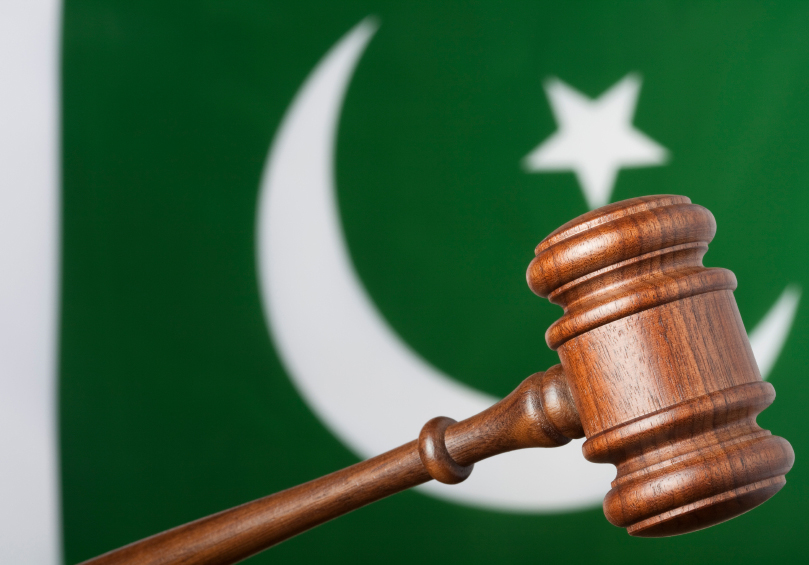
Feb 22, 2017 | News
The Pakistan Government must not bring back military courts to try civilians for terrorism-related offences, the ICJ said today.
An earlier law giving military courts authority to try civilians lapsed after two years on 6 January 2017.
The use of military courts to try civilians is inconsistent with international standards, the ICJ recalled.
“Evidence from practice clearly shows that not only have military trials of civilians been blatantly unjust and in violation of the right to a fair trial, they have also been ineffective in reducing the very real threat of terrorism in Pakistan,” said Sam Zarifi, ICJ’s Asia Director.
According to media reports, the draft amendment, if adopted, would extend the “exceptional” use of military courts for another three years. The ICJ fears that repeated extensions risk making the practice effectively permanent.
It would also give military courts jurisdiction over any offence considered to be an act of terrorism, a broader mandate than 2015 constitutional amendment, which was applicable only to “terrorism motivated by religion or sectarianism” and where the accused were “members of proscribed organizations”.
“Bringing back military courts deflects attention from the real issue: the Government’s complete failure to enact necessary reforms to strengthen the criminal justice system in the two years military courts were in operation,” Zarifi said.
“The Government must account for its failure to deliver on the promise of delivering justice for the victims of terrorism and other abuses in Pakistan instead of once again extending the “exceptional” use of military courts for civilian trials,” he added.
The Government has scheduled a meeting with opposition parties on 23 February in an attempt to achieve consensus over a constitutional amendment to restore military courts.
Constitutional amendments require a two-thirds majority vote in both houses of parliament to be enacted.
While the ruling party has the requisite majority in the National Assembly (lower house), it appears to lack the numbers in the Senate (upper house) to pass the amendment.
The Pakistan Parliament must stand up to the executive in defense of the rights of all people in Pakistan, instead of allowing the administration to bring back—and even expand—a discredited and abusive process, the ICJ says.
Pakistan passed the 21st amendment to the Constitution in January 2015, authorizing military courts to try civilians for terrorism-related offences for a period of two years. The 21st amendment lapsed on 6 January 2017.
Military courts have convicted 274 people in the two years since they have been used to try civilian terror suspects. . One hundred and sixty-one people were sentenced to death and 113 people were given prison sentences. At least 12 people given death sentences have been executed by hanging.
The ICJ has documented serious fair trials violations in the operation of military courts including: denial of the right to counsel of choice; failure to disclose the charges against the accused; denial of a public hearing; failure to give convicts copies of a judgment with evidence and reasons for the verdict; and a very high number of convictions based on “confessions” without adequate safeguards against torture and ill treatment.
The ICJ unequivocally opposes the use of the death penalty as a violation of the right to life and freedom from cruel, inhuman or degrading punishment.
Contact
Sam Zarifi, ICJ Asia Pacific Regional Director (Bangkok), t: +66 807819002; e: sam.zarifi(a)icj.org
Reema Omer, ICJ International Legal Adviser for Pakistan (Lahore), t: +923214968434; e: reema.omer(a)icj.org
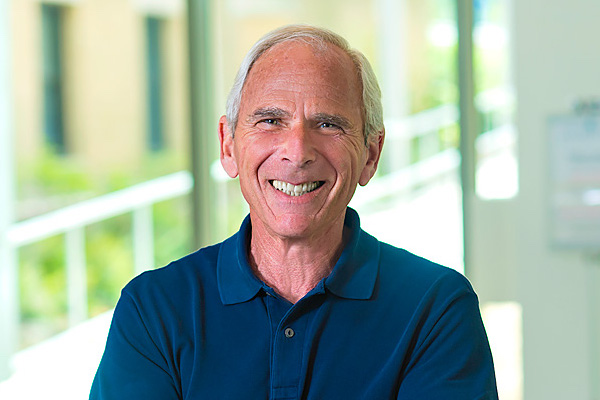
Feb 20, 2017 | News
Following the death of ICJ President Professor Sir Nigel Rodley, Professor Robert K. Goldman has been appointed Acting-President of the ICJ.
Professor Goldman, from the United States, was appointed by the ICJ’s Executive Committee to serve as Acting President until such time as a new President is elected by the entire Commission.
Professor Goldman’s extensive background in human rights and the rule of law, as well as his experience as ICJ Vice-President, makes him well placed to fulfill this role and to build upon Professor Sir Nigel’s legacy in striving to promote and protect the ICJ’s mission.
Professor Goldman’s willingness to take on the role of Acting-President will provide the ICJ with the leadership the organization needs during this challenging time, when human rights are suffering from a global backlash, whilst the ICJ takes the time to find and elect the right person to fulfill the role of President.
Professor Robert K. Goldman’s biography
Robert Goldman was elected to the ICJ Commission in 2008 and then to the Executive Committee later that year, he was elected Vice-President in September 2014 and re-elected in 2016.
Robert Goldman is currently Professor of Law and Louis C. James Scholar at American University Washington College of Law. Professor Goldman teaches, practices and writes in the areas of International Law, Human Rights Law, Terrorism, and International Humanitarian Law.
He is also Faculty Director of the War Crimes Research Office and Co-Director of WCL’s Center For Human Rights and Humanitarian Law.
Prior to his academic career, Robert practiced international trade law at Arnold & Porter from 1974-1976.
In 1993, he chaired the Commission of International Jurists on the Administration of Justice in Peru, jointly tasked by the US and Peruvian governments to evaluate Peru’s anti-terrorist legislation.
He helped from 1994-1996 develop the normative framework for internally displaced persons and was a principal author of The Guiding Principles on Internal Displacement.
He was a member of the Inter-American Commission on Human Rights from 1995 to 2004 and was that body’s president in 1999-2000. Prior to his election to the Inter-American Commission, he was a member of the Policy Committee of Human Rights Watch and the Advisory Boards of Americas Watch, Helsinki Watch and Middle East Watch.
From July 2004 to August 2005, Professor Goldman was the former UN Human Rights Commission’s Independent Expert on the protection of human rights and fundamental freedoms while countering terrorism.
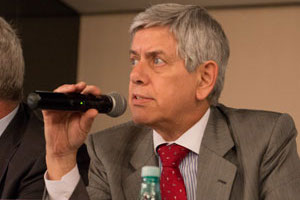
Feb 20, 2017 | News
On Monday 20 February 2017, the ICJ Commissioner Belisário Dos Santos Júnior and the lawyer, Jaime Araíújo Rentería commenced an international mission in Guatemala.
The ICJ Commissioner Belisário Dos Santos Júnior (photo) is the former representative of the Brazilian lawyers’ association at the São Paulo Human Rights Commission, who has acted as the legal representative for political detainees. Jaime Araújo Rentería, former President of the Colombian Constitutional Court is a practicing lawyer and university professor.
The objective of the mission is to evaluate the situation of the legal profession in the country, identify obstacles and challenges, and offer perspectives about ways in which the State can provide better protection for lawyers so they can carry out their functions in an independent and safe manner.
The two mission members will be in Guatemala for a week and will interview the President and Executive Committee of the Bar Association, human rights lawyers, and high-level officials from the three branches of the State, members of the international community and representatives of human rights organizations.
On Friday 24 February, the two lawyers will hold a press conference to present the conclusions and recommendations of the mission to the press and general public.
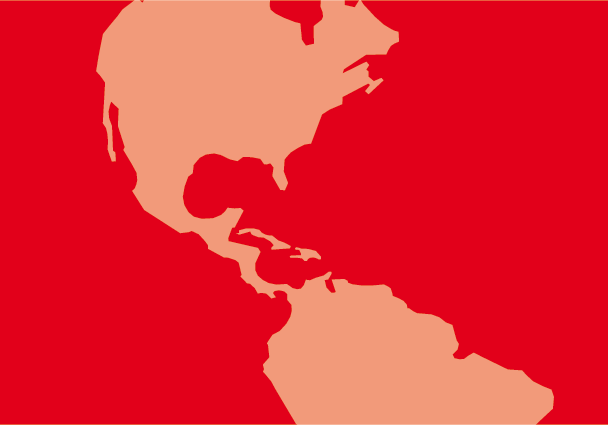
Feb 20, 2017 | Artículos, Noticias
El Comisionado de la CIJ Belisário Dos Santos Júnior y el abogado Jaime Araújo Rentería llevarán a cabo la misíon.
A partir del día de hoy lunes 20 de febrero 2017, el Comisionado de la CIJ Belisário Dos Santos Júnior (foto), Jurista de Brasil y quien ha sido abogado defensor de detenidos políticos y ex representante del gremio de abogados de Brasil ante la Comisión de Derechos Humanos de Sao Paulo y el abogado Jaime Araújo Rentería, ex Presidente de la Corte Constitucional de Colombia, abogado litigante y profesor universitario, llevarán a cabo una misión en Guatemala, con el propósito de evaluar la situación del ejercicio de la abogacía en el país, determinar los obstáculos que se presentan para el ejercicio de la profesión de abogado y los retos y perspectivas para que el Estado brinde una mayor protección a abogados y abogadas en el ejercicio de su profesión y que puedan desempeñarse en forma independiente y segura.
Los dos juristas permanecerán en el país toda la semana y se entrevistarán con el Presidente del Colegio de Abogados, con su JuntaDirectiva, con abogados y abogadas defensores de derechos humanos, con funcionarios de los tres poderes del Estado al más alto nivel, con miembros de la Comunidad Internacional y con representantes de organizaciones de derechos humanos.
Al terminar su misión, el viernes 24 de febrero del presente año, ofrecerán una conferencia de prensa, para presentar sus conclusiones y recomendaciones a la prensa y al público en general.









